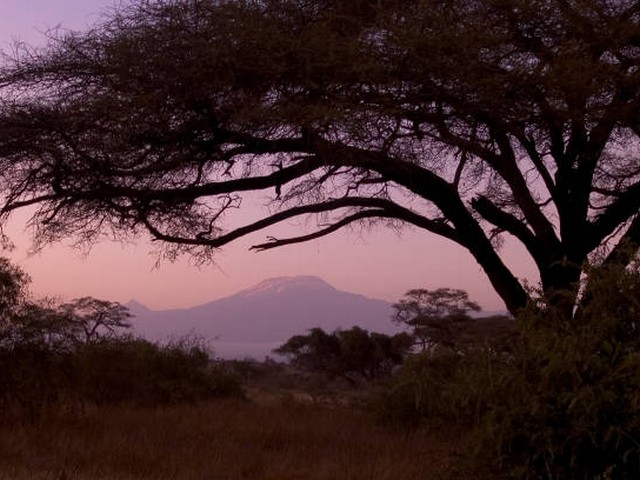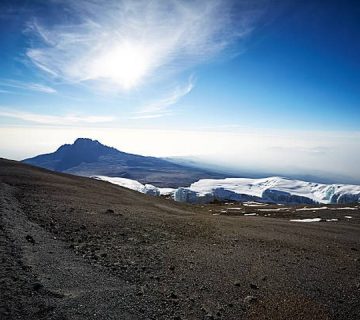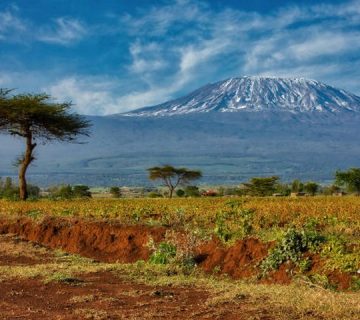Conquer the Heights: Essential Tips For Dealing With Altitude Sickness on Mount Kilimanjaro
Reaching the summit of Mount Kilimanjaro is a dream etched in the hearts of adventurous souls around the world. The allure of standing atop Africa’s highest peak draws thousands of trekkers each year. However, the journey to Uhuru Peak isn’t just a physical challenge; it’s also a battle against the altitude. At the Kilimanjaro Centre for Trekking and Ecotourism (KCTE), we understand that preparation is key to enjoying and succeeding in your climb. That’s why we’re here to guide you through managing one of the most common challenges faced by climbers: altitude sickness.
What is Altitude Sickness?
Altitude sickness, also known as acute mountain sickness (AMS), can occur when you travel to a high altitude too quickly. Symptoms range from headaches and nausea to dizziness and fatigue. Understanding how to manage these symptoms is crucial for a successful climb.
Pre-Climb Preparation: Building Your Altitude Resilience
1. Get Fit, Stay Fit
Physical fitness is your first defense against altitude sickness. Strengthen your cardiovascular system with exercises like running, cycling, and swimming. The fitter you are, the better your body can cope with reduced oxygen levels.
2. Acclimatize Before the Ascent
Spend a few days at a moderate altitude to prepare your body for the higher elevations. Here at KCTE, we recommend arriving in Tanzania a few days early to explore lower-altitude attractions and gradually acclimate.
3. Hydration is Key
Dehydration can exacerbate the symptoms of altitude sickness. Increase your water intake several days before and during your climb. Aim for 4-6 liters per day, but remember to balance electrolytes to avoid water intoxication.
On the Trail: Strategies to Mitigate Altitude Sickness
1. Pace is Paramount
One of the golden rules when climbing Kilimanjaro is "Pole Pole" (slowly, slowly in Swahili). Maintaining a slow and steady pace helps your body adjust to the altitude gradually, reducing the risk of AMS.
2. Listen to Your Body
Recognize the symptoms of altitude sickness early. If you feel any discomfort, communicate with your guide—our KCTE guides are trained to recognize and deal with altitude-related issues efficiently.
3. Eat for Energy
While your appetite might wane, it’s important to keep eating. Carbohydrates are your friends in high altitudes as they’re easier to digest and provide sustained energy.
4. Rest and Recover
Ensure you have adequate rest. Sleep can be elusive at high altitudes, so take short naps during the day if possible to bolster your energy levels.
Medical Aids and Supplements
1. Consider Acetazolamide
Commonly known as Diamox, this medication can be taken 24 hours before your ascent to help prevent the symptoms of altitude sickness. Consult with a healthcare provider to discuss its suitability for you.
2. Natural Remedies
Ginger tea can help alleviate nausea, and Ginkgo Biloba is said to improve blood circulation and oxygenation at high altitudes. However, always check with a health professional before using supplements.
Why Choose Kilimanjaro Centre For Trekking and Ecotourism (KCTE)?
At KCTE, we’re not just about climbing; we’re about making your climb successful and memorable. Our expert guides are equipped with the knowledge and experience to assist you in managing altitude sickness, ensuring you have a safe and enjoyable trek. Our tailored acclimatization schedules are designed to give you the best chance of reaching the summit triumphantly.
FAQs on Dealing With Altitude Sickness
What are the first signs of altitude sickness?
The first signs include headache, dizziness, tiredness, and shortness of breath. If you experience these, it’s essential to communicate with your guide immediately.
Can altitude sickness be prevented?
While not entirely preventable, the risk can be significantly reduced by following the guidelines outlined, such as gradual acclimatization and staying hydrated.
How quickly does altitude sickness occur?
Symptoms can appear within a few hours of ascent, but this varies widely among individuals.
Is it necessary to take medication for altitude sickness?
Not everyone needs medication, but for those who are particularly susceptible, medications like Diamox can be helpful. Consultation with a healthcare provider is recommended.
The Summit Awaits You
Conquering Kilimanjaro is a profound testament to the human spirit’s resilience. At Kilimanjaro Centre For Trekking and Ecotourism (KCTE), we are committed to providing you with all the tools, support, and advice you need to stand on the roof of Africa, free from the worries of altitude sickness. Ready to embark on your Kilimanjaro adventure? Contact us today and let us help you make your dream a reality. Remember, it’s not just about reaching the summit; it’s about enjoying every step of the journey up the majestic Kilimanjaro.




